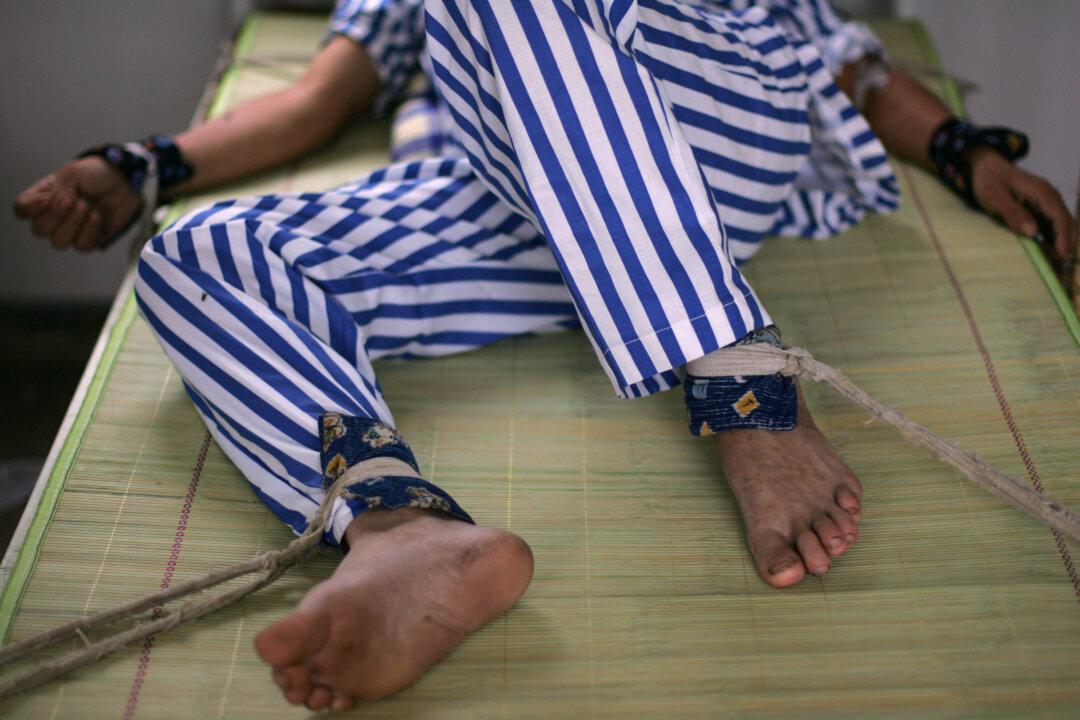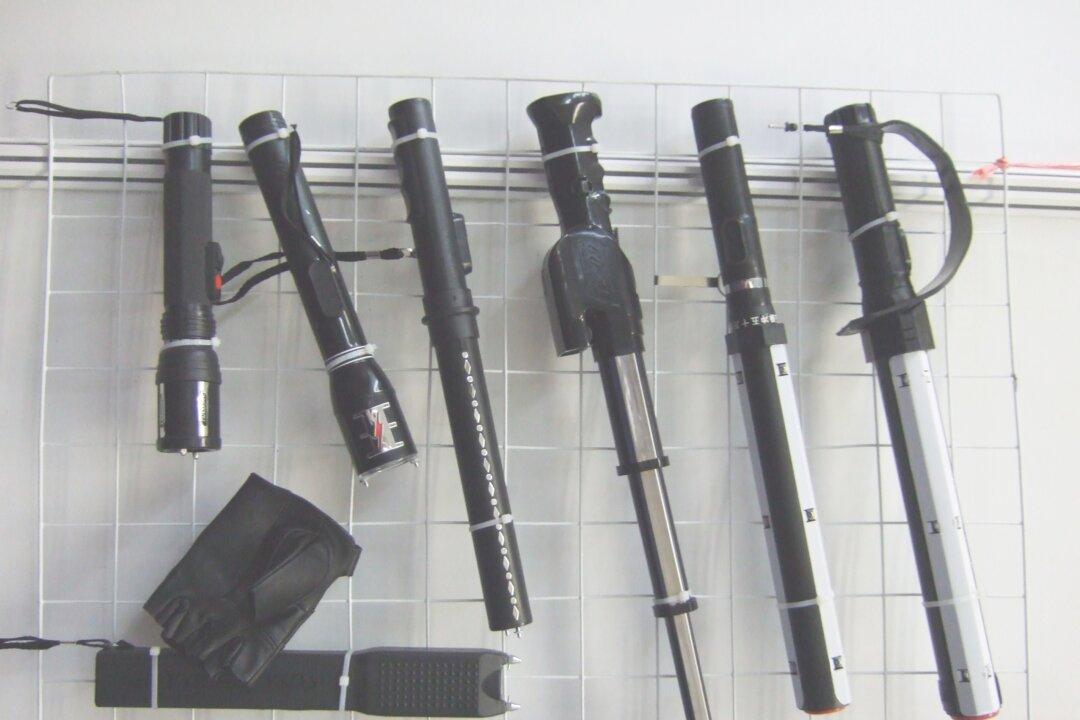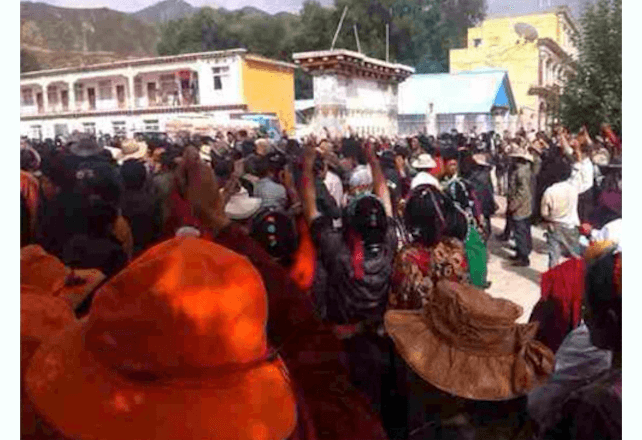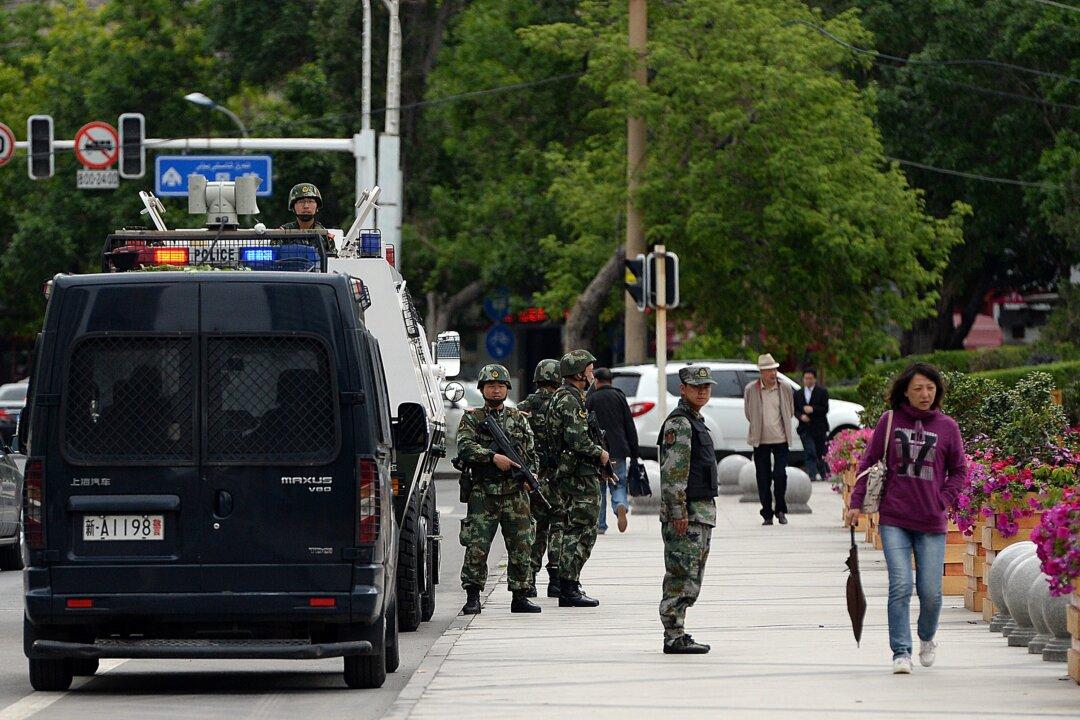The Chinese Communist Party, under the guise of benefiting the masses in Tibet, has mobilized over 5,000 teams of officials and Communist Party cadres, some 21,000 in number, in a village level campaign consisting of extensive surveillance, political re-education, and expanding the influence and size of the Party, said Human Rights Watch (HRW) in a statement released today.
The campaign, a component of a three-year drive in Tibet to promote “stability maintenance,” is called “Solidify the Foundations, Benefit the Masses.” It identifies those perceived as potentially disloyal, and restricts their freedom of religion and opinion, according to HRW.
“It’s hard to see the ‘benefit’ to Tibetans of thousands of political education sessions, partisan quasi-police force operations, and scrutiny of their political views,” said Sophie Richardson, HRW China director.
“In a region where people are already subjected to extraordinary monitoring, this village-level drive, alongside similar efforts directed at towns and monasteries, effectively means that Tibetans cannot avoid state surveillance,” said Richardson.
“If the government and the party are serious about improving everyday life of Tibetans, they must begin with addressing ongoing human rights violations, including restrictions on religious freedom, freedom of expression, and access to information,” she continued.
The cadres have been stationed in groups of four or more in each of the over 5,000 villages in Tibet, at a cost of approximately 1.48 billion yuan ($227 million) annually, roughly equivalent to the amount allocated for the construction and improvement of infrastructure.
Their mission is to promote “stability maintenance” and entirely eliminate protests or expressions of dissent, attributed to “splittist sabotage by hostile forces and the Dalai Clique,” said the HRW press release.
The three year drive in Tibet includes a new monastery monitoring system implemented in 2011, the installation in 2012 of an increased surveillance system similar to the grid system installed in troublesome Xinjiang, and the new “Solidify the Foundations, Benefit the Masses” campaign, providing wrap around surveillance, religious repression, Communist Party influence and control over the populace.
“Beijing’s obsession with so-called ‘stability maintenance’ is a recipe for abuses,” Richardson said. “It is intended to suppress Tibetan citizens’ basic rights to free expression and to instill fear.”
“Stability maintenance,” was advanced by Tibet’s party secretary in March 2013 as “the number one priority exceeding all else” in Tibet, and in February, the official in charge of Tibet’s stability maintenance told paramilitary forces that they must “strengthen surveillance and secret intelligence,” according to HRW.
“Deepening the struggle” against followers of the Dalai Lama and “strengthening the management and education of monks and nuns” are the means to achieving “social stability“ according to the report.




